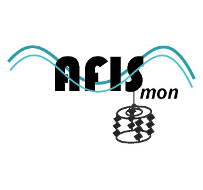Work packages of AFISmon
The project AFISmon consists of six interacting work packages (WPs), which are shown in this figure:
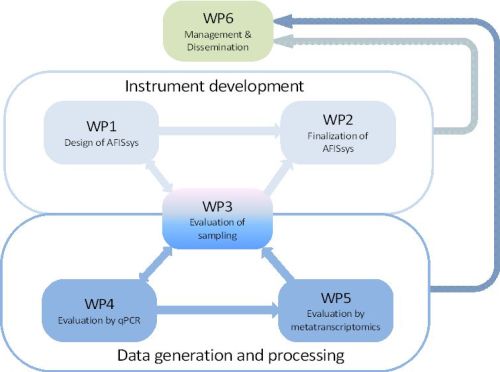
WP 1: Design of an autonomous in situ fixation multisampler
The fundament of an autonomous monitoring system is a reliable and long-lasting control and energy supply system. The control should be able to trigger sampling either by time or by certain events. The energy supply should be sufficient to reliably run the mechanics of the sampling unit (based on WP3) for a long period of time under any sea condition.
The major objective of the work package is to make such a system user-friendly and operable.
PI: Uwe Fischer
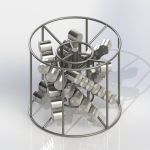
WP 2: Finalizing an autonomous in situ fixation multisampler
WP1 develops the basic components of the AFISsys. In WP2 the final design of the AFISsys will be realized, using modular components of the HydroBios GmbH, and evaluated at the Marnet station under field conditions.
PI: Uwe Fischer
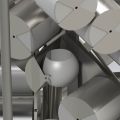
WP 3: Validation of the sampling procedures
For a multisampler, the sample volume is a critical parameter limiting the number of samples obtainable due to constraints imposed by e.g. volume of fixative, size of storage chambers, and size of the whole sampler. Also, autonomous sampling at aquatic observatories requires storage of sampled material until further processing. Several sampling events within a time span also include the risk of biofilm formation within the sampling chamber prior to sampling. A biofilm consists of surface-associated microorganisms that will likely bias the original sample metatranscriptome if present; thus, biofilm formation has to be avoided. Taken together these main factors dictate the design and operating time of the sampling instrument.
Moreover, for potential future integration into monitoring, a high reproducibility and accuracy is a necessity.
PI: Matthias Labrenz
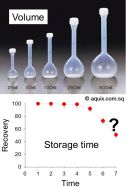
WP 4: Validation of the system by RT-qPCR
The main objective of this WP is to define thresholds for accurate and reproducible quantification of key gene transcripts in samples obtained in WP3. Transcript copy numbers in samples of different volumes, and stored for different times, will be quantified. The largest volume and shortest time will serve as the reference. Based on measurement of deviation from the reference gene expression a cutoff for sampling volume and time of storage will be obtained. These requirements will be integrated in the AFISsys module development and design (WP1 and WP2).
PI: Lasse Riemann
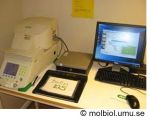
WP 5: Evaluation of the system by metatranscriptomics
The most important ambition of AFISsys is the unbiased in situ conservation of metatranscriptomic profiles. And therefore, the first objective of the WP is to define thresholds in the analysis of metatranscriptomic profiles in samples generated in WP3, especially relative to the minimal sample volume defined in WP4. The second objective is to investigate the validity, reproducibility, and resolution of metatranscriptomic datasets generated from selected samples of the Marnet station, especially for hypoxic and sulfidic waters (WP2) where sharp changes in metatranscriptomic profiles occur.
PI: Anders Andersson
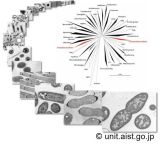
WP 6: Project management
The management (IOW) will be responsible for the project organization, and will at the project start communicate protocols/agendas for project communication and document exchange, for the kick-off meeting organization (within the first months of the project) and other necessary meetings, for gender equality promotion, and for the timely delivery of project deliverables. IOW will design the consortium agreement in concert with the partners, perform payments of the grant from the commission to the project partners, and manage contract amendments that can arise during the course of the project. IOW will also develop and maintain the project website, ensure timely submission of reports and deliverables to the Commission, facilitate close contact between partners, and be responsible for communication with the BONUS Secretariat.
Progress within the project will be used to advertise and promote the AFIS technology at relevant scientific meetings and exhibitions, or on a roadshow. This material will be also provided to all partners for their promotion towards national authorities responsible for aquatic monitoring programs.
